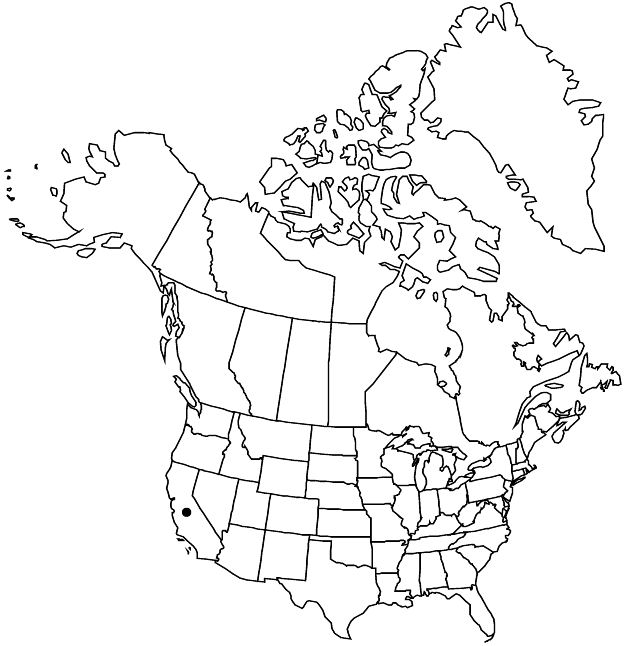Difference between revisions of "Linum trigynum"
Sp. Pl. 1: 279. 1753.
FNA>Volume Importer |
imported>Volume Importer |
||
| Line 32: | Line 32: | ||
|elevation=100–200 m. | |elevation=100–200 m. | ||
|distribution=Calif.;s Europe;w Asia;n Africa;introduced also in Pacific Islands (Hawaii;New Zealand);Australia. | |distribution=Calif.;s Europe;w Asia;n Africa;introduced also in Pacific Islands (Hawaii;New Zealand);Australia. | ||
| + | |introduced=true | ||
|discussion=<p><i>Linum trigynum</i> is one of three species in sect. Linopsis subsect. Halolinum (Planchon) C. M. Rogers. This section is characterized as having separate styles, linear stigmas, and incomplete false septa. <i>Linum trigynum</i> is homostylous; the other two species, <i>L. maritimum</i> Linnaeus and L. tenue Desfontaines, are heterostylous. Two populations of <i>L. trigynum</i> have been reported in Sonoma County on the Jenner and Fort Ross State Historic Park headlands, both with hundreds of individuals and apparently persisting. Where native, the species sometimes occurs on serpentine soils, and it is reported as a weed in western Australia.</p> | |discussion=<p><i>Linum trigynum</i> is one of three species in sect. Linopsis subsect. Halolinum (Planchon) C. M. Rogers. This section is characterized as having separate styles, linear stigmas, and incomplete false septa. <i>Linum trigynum</i> is homostylous; the other two species, <i>L. maritimum</i> Linnaeus and L. tenue Desfontaines, are heterostylous. Two populations of <i>L. trigynum</i> have been reported in Sonoma County on the Jenner and Fort Ross State Historic Park headlands, both with hundreds of individuals and apparently persisting. Where native, the species sometimes occurs on serpentine soils, and it is reported as a weed in western Australia.</p> | ||
|tables= | |tables= | ||
| Line 56: | Line 57: | ||
|publication year=1753 | |publication year=1753 | ||
|special status=Introduced | |special status=Introduced | ||
| − | |source xml=https:// | + | |source xml=https://bibilujan@bitbucket.org/aafc-mbb/fna-data-curation.git/src/bb6b7e3a7de7d3b7888a1ad48c7fd8f5c722d8d6/coarse_grained_fna_xml/V12/V12_171.xml |
|genus=Linum | |genus=Linum | ||
|section=Linum sect. Linopsis | |section=Linum sect. Linopsis | ||
Revision as of 21:07, 27 May 2020
Herbs, annual, 10–50 cm, glabrous. Stems erect or spreading, few-branched. Leaves alternate, spreading to ascending; stipular glands absent; blade linear-lanceolate to narrowly elliptic, 5–10 × 1–1.5 mm, margins entire, not ciliate, apex acuminate. Inflorescences panicles. Pedicels 1–5 mm. Flowers: sepals persistent, lanceolate to ovate, 3–4 mm, margins of inner sepals broadly scarious, densely glandular-ciliate, glandular-toothed, apex acuminate to setaceous; petals lemon yellow, oblong to obovate, 4–6 mm; stamens 1.5 mm; anthers 0.3 mm; staminodia present or absent; styles distinct, 1 mm; stigmas linear. Capsules subglobose, 2 mm diam., apex sharp-pointed (easily crushed), readily dehiscing into 5, 2-seeded segments, segments persistent on plant, false septa incomplete, margins of true septa ciliate. Seeds 1.1 × 0.9–1 mm. 2n = 20.
Phenology: Flowering May–Jul.
Habitat: Grasslands.
Elevation: 100–200 m.
Distribution

Introduced; Calif., s Europe, w Asia, n Africa, introduced also in Pacific Islands (Hawaii, New Zealand), Australia.
Discussion
Linum trigynum is one of three species in sect. Linopsis subsect. Halolinum (Planchon) C. M. Rogers. This section is characterized as having separate styles, linear stigmas, and incomplete false septa. Linum trigynum is homostylous; the other two species, L. maritimum Linnaeus and L. tenue Desfontaines, are heterostylous. Two populations of L. trigynum have been reported in Sonoma County on the Jenner and Fort Ross State Historic Park headlands, both with hundreds of individuals and apparently persisting. Where native, the species sometimes occurs on serpentine soils, and it is reported as a weed in western Australia.
Selected References
None.